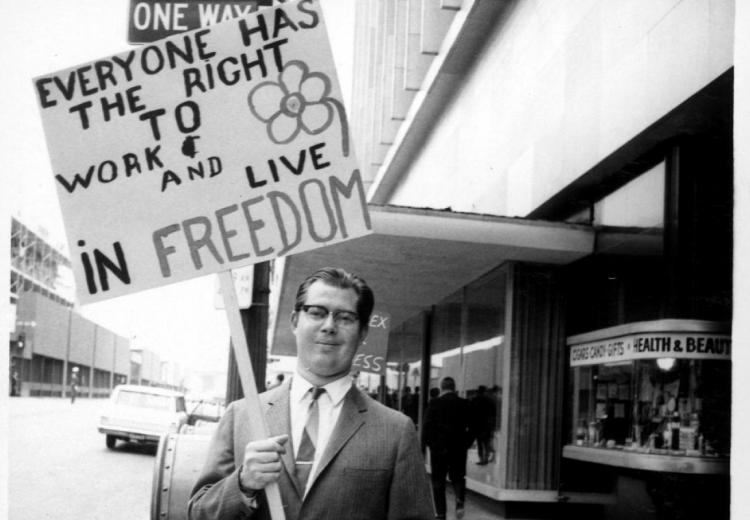Media Resource
The LGBTQ Community in American History

Photo caption
Demonstrator outside the State Steamship Lines, circa May 1969, during an event organized by Troy Perry and Jim Kepner.
Courtesy of ONE Archives/USC.
The Backstory episode "Out of the Closet: The LGBTQ Community in American History" explores the history of gay rights in the U.S., with segments on the career of Harvey Milk and a look at movements for change in California, New York, and the Midwest. Supplemental materials for studying gay rights are also provided.
Audio file
A full transcript of this episode can be found at the BackStory website.
Milk for Supervisor (00:00-09:14)
Finding Gender Fluidity in the Old West (9:15-21:11)
"Gotta Give 'em Hope" (37:12-49:03)
From Policing Queerness to a Diverse Force (49:05-1:18:00)
NEH Connections
Related on EDSITEment
Student Activity
